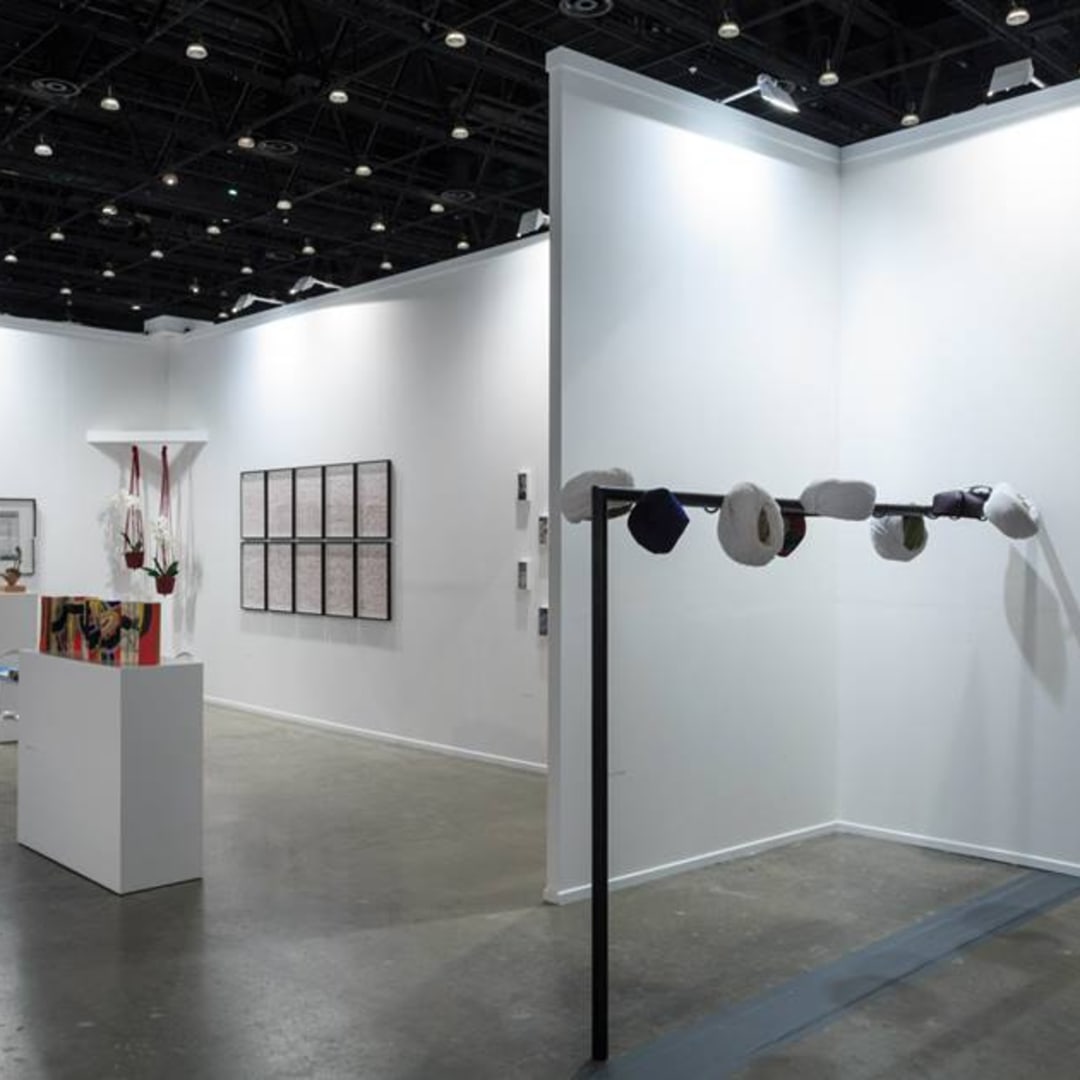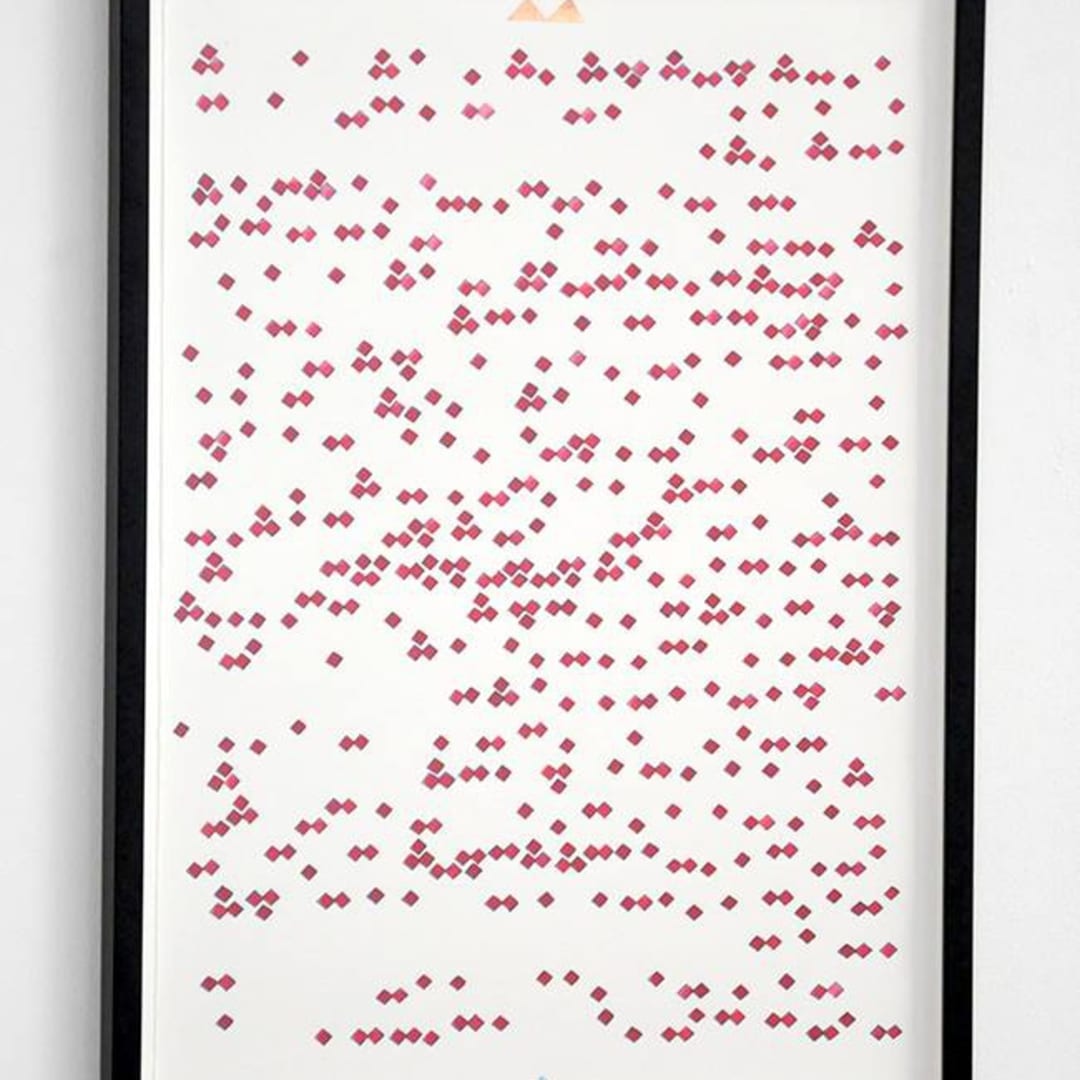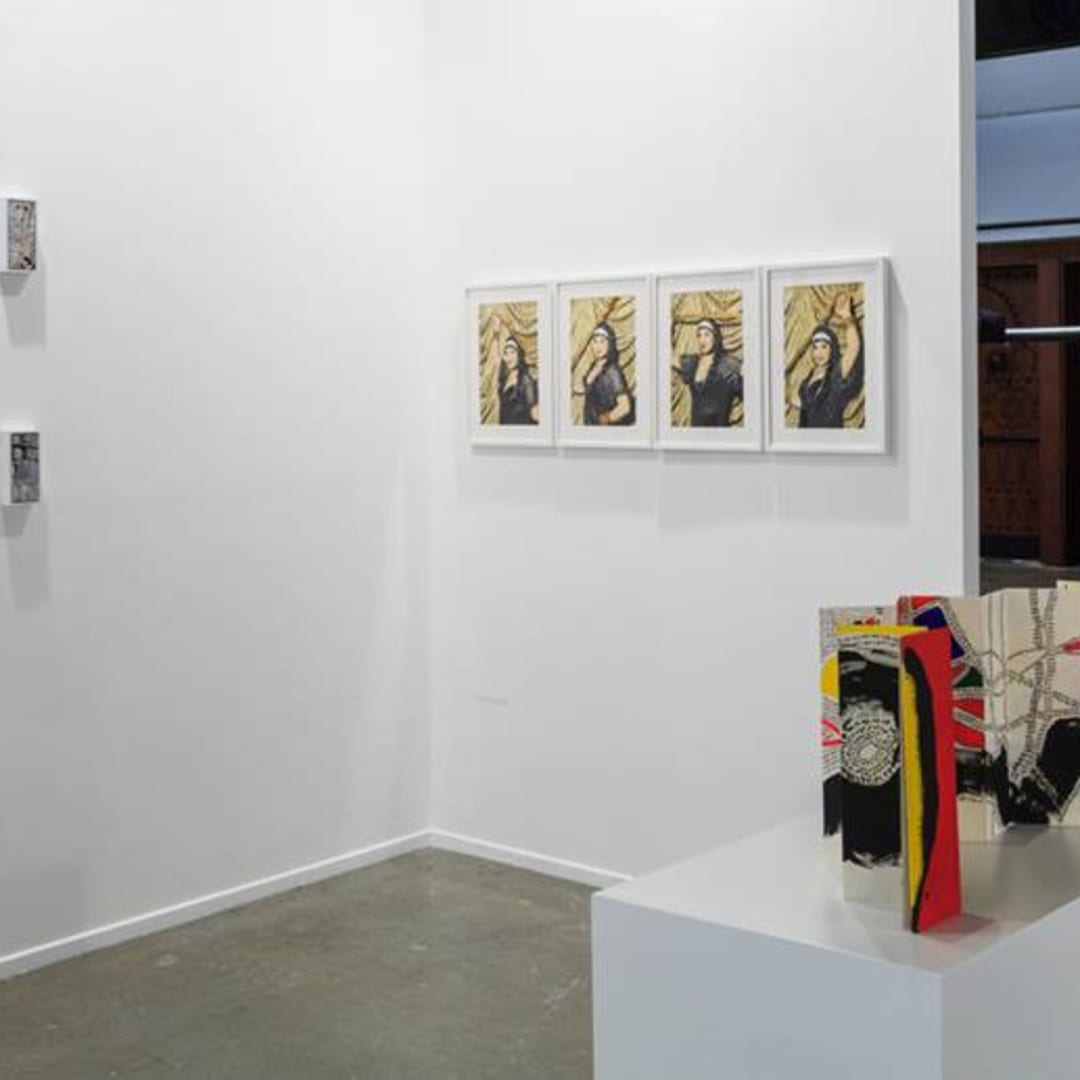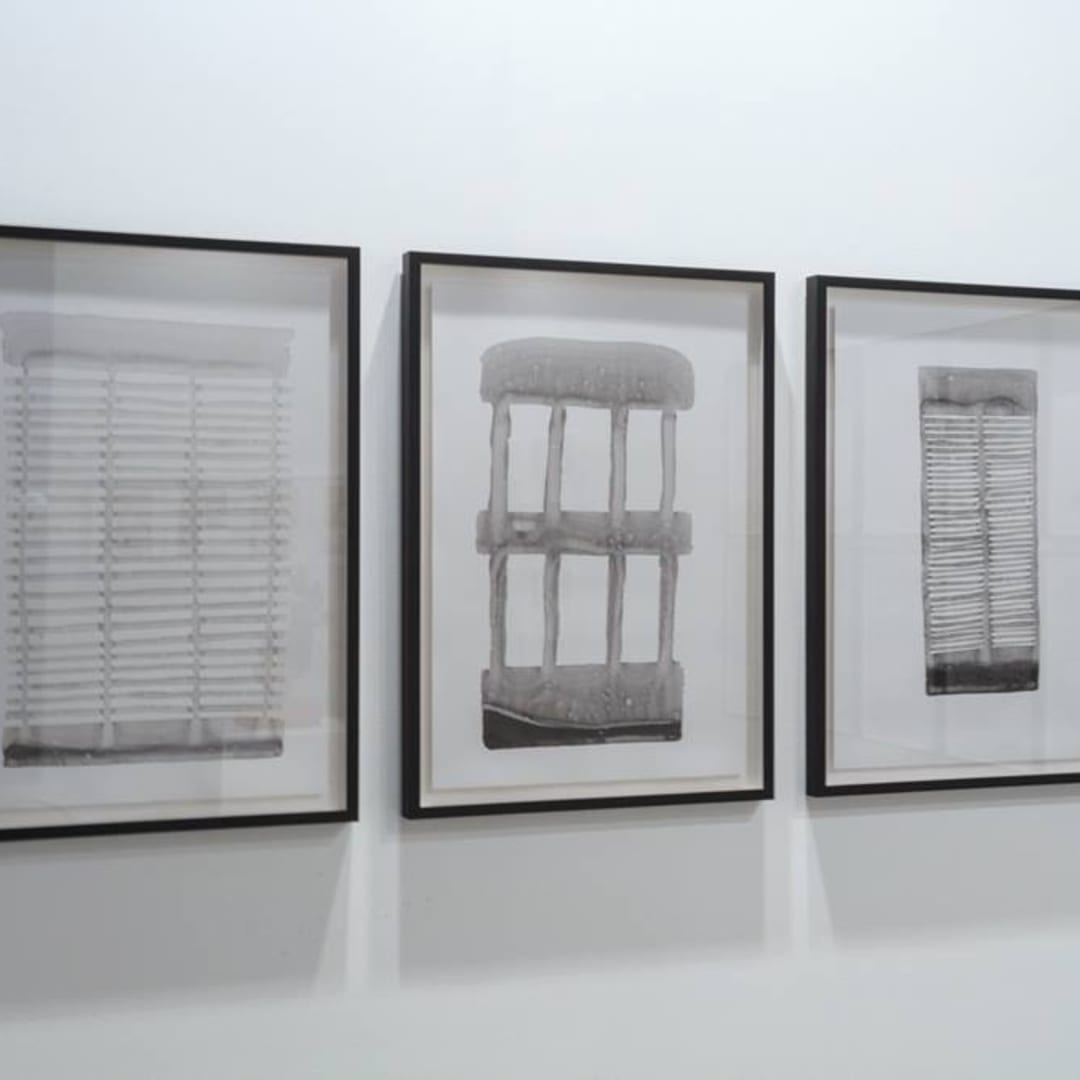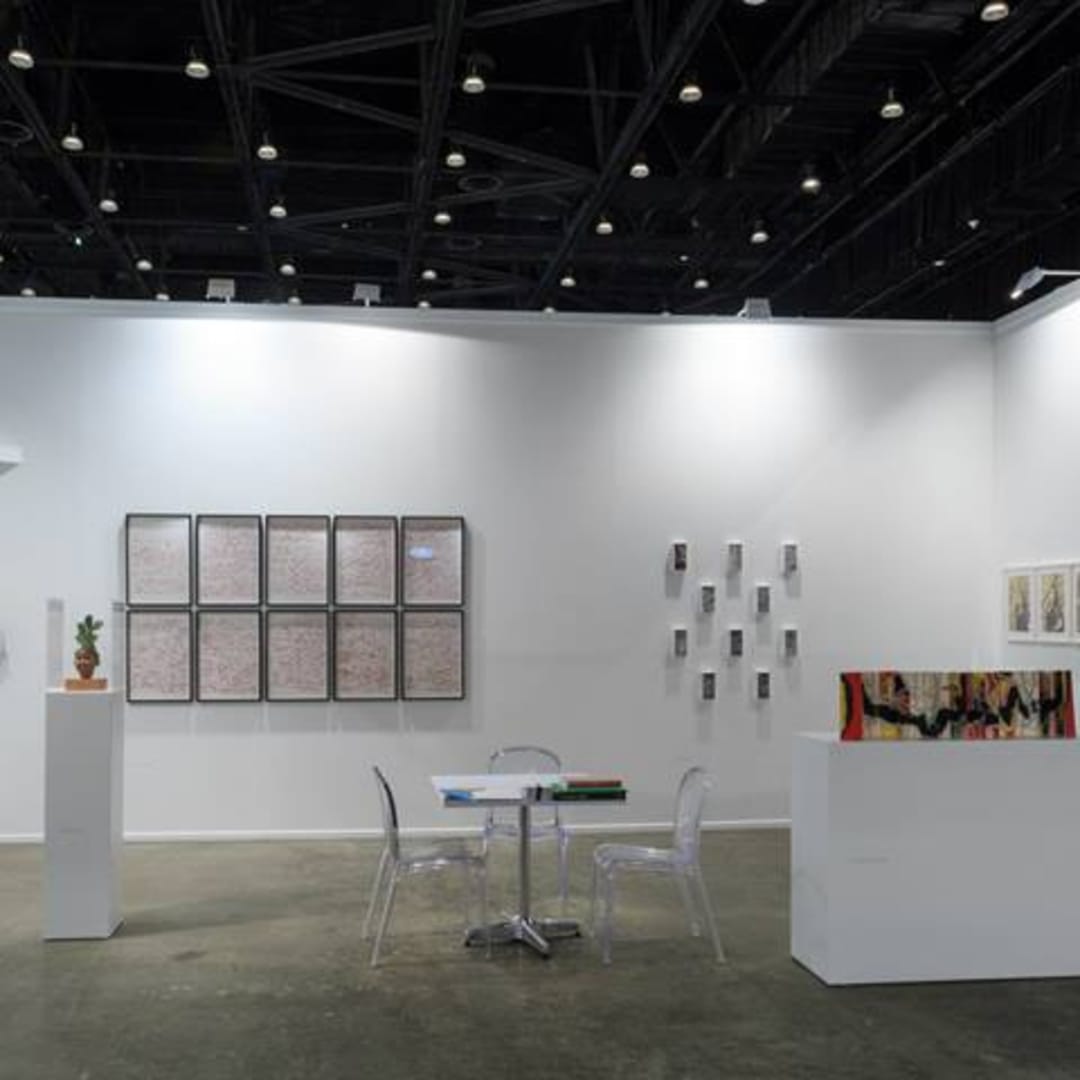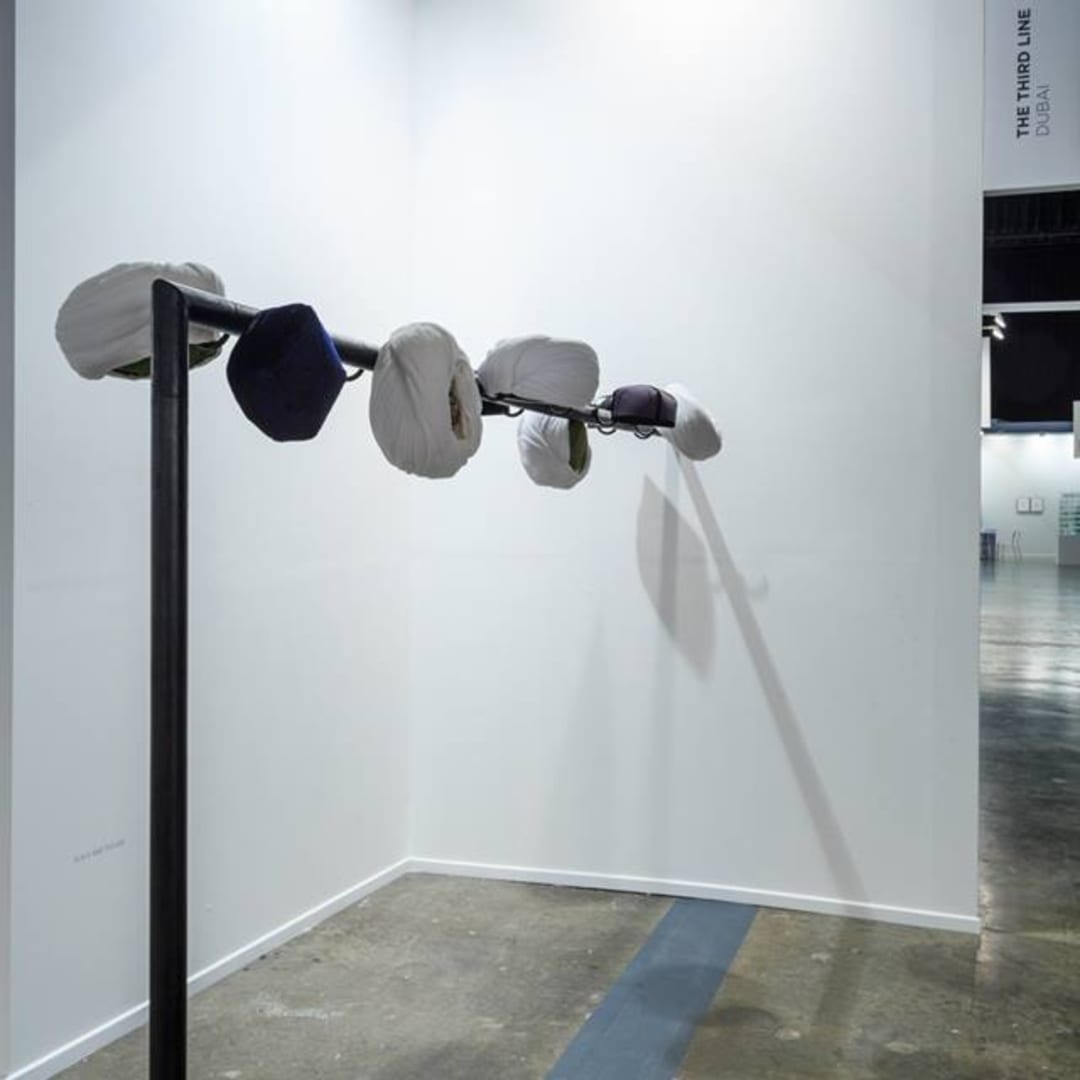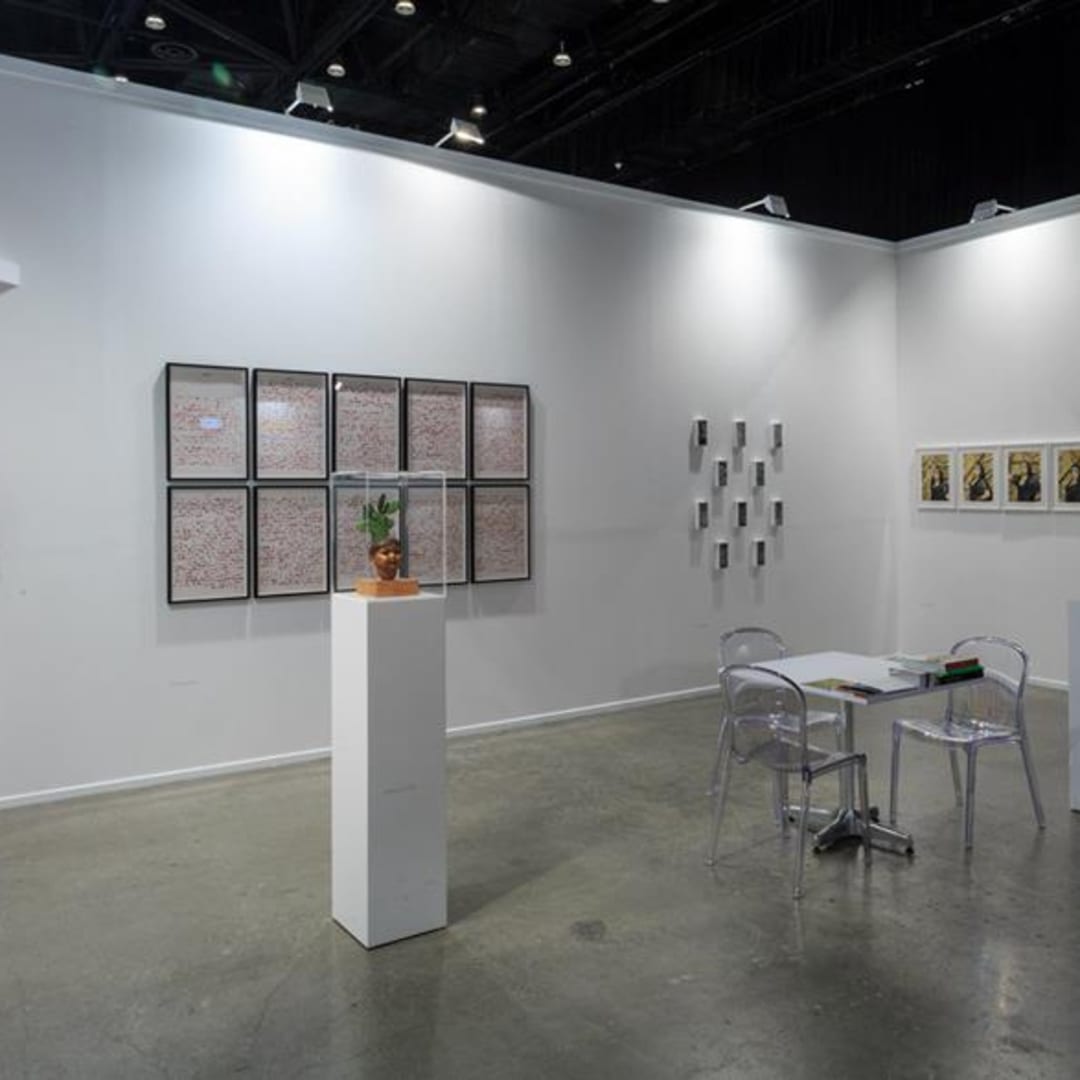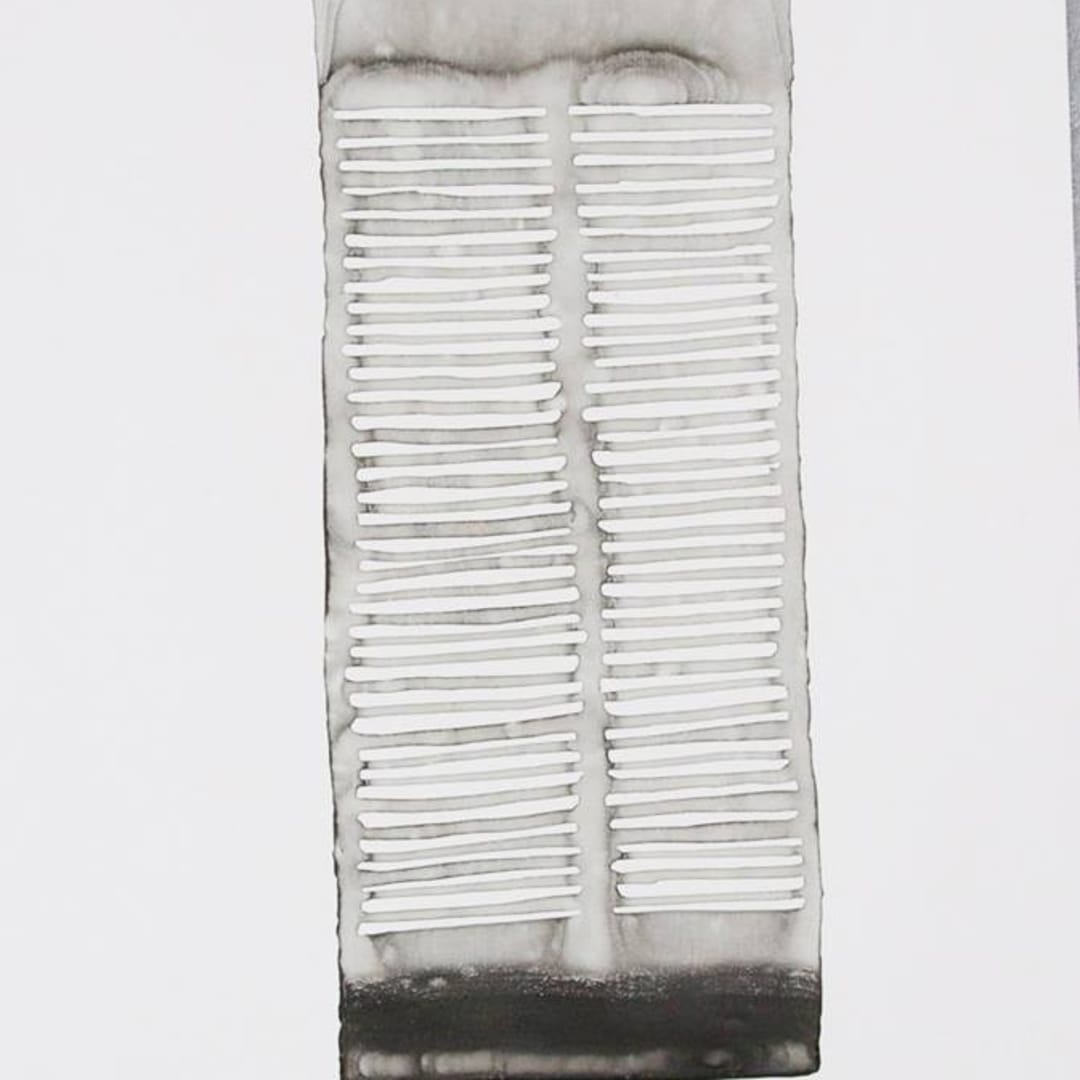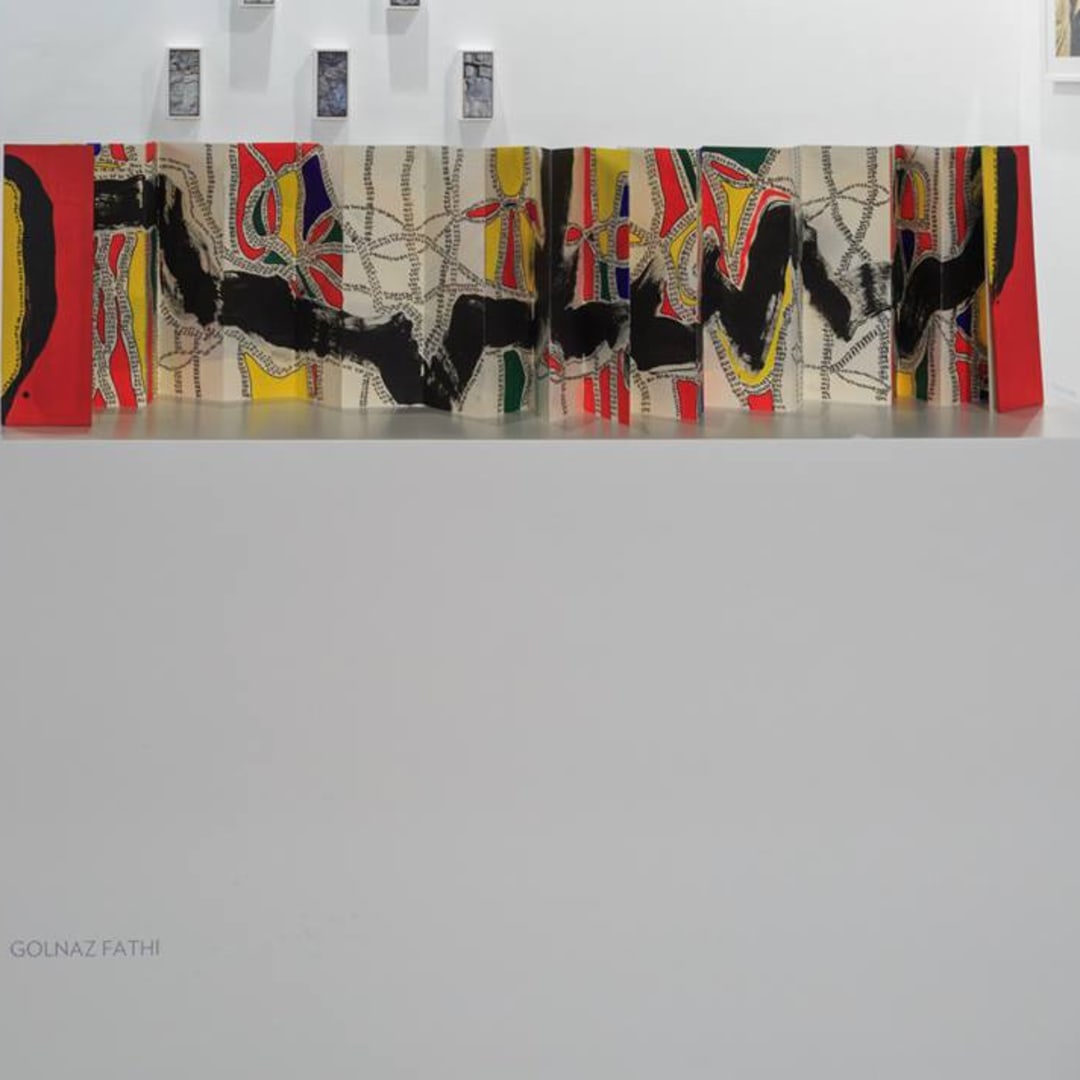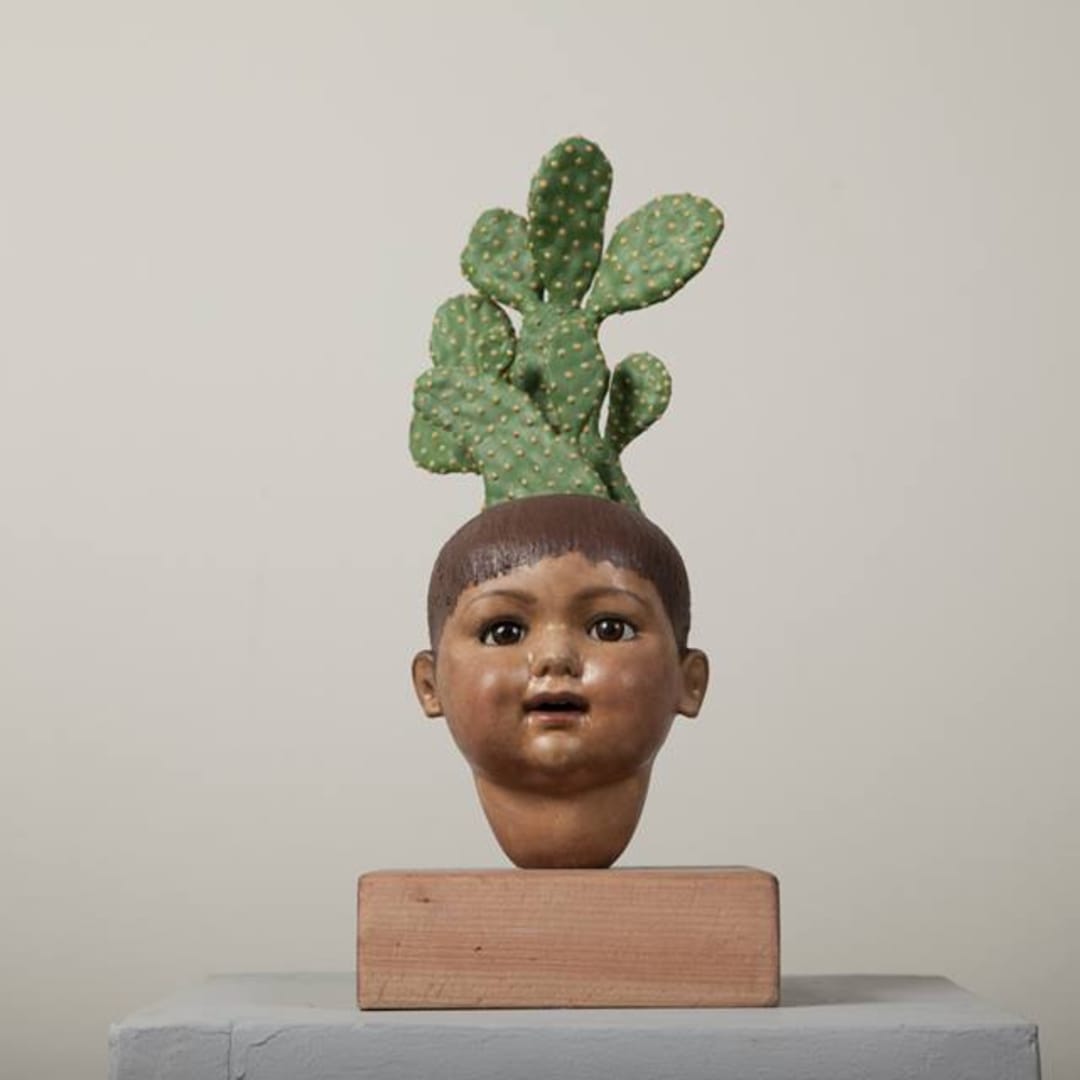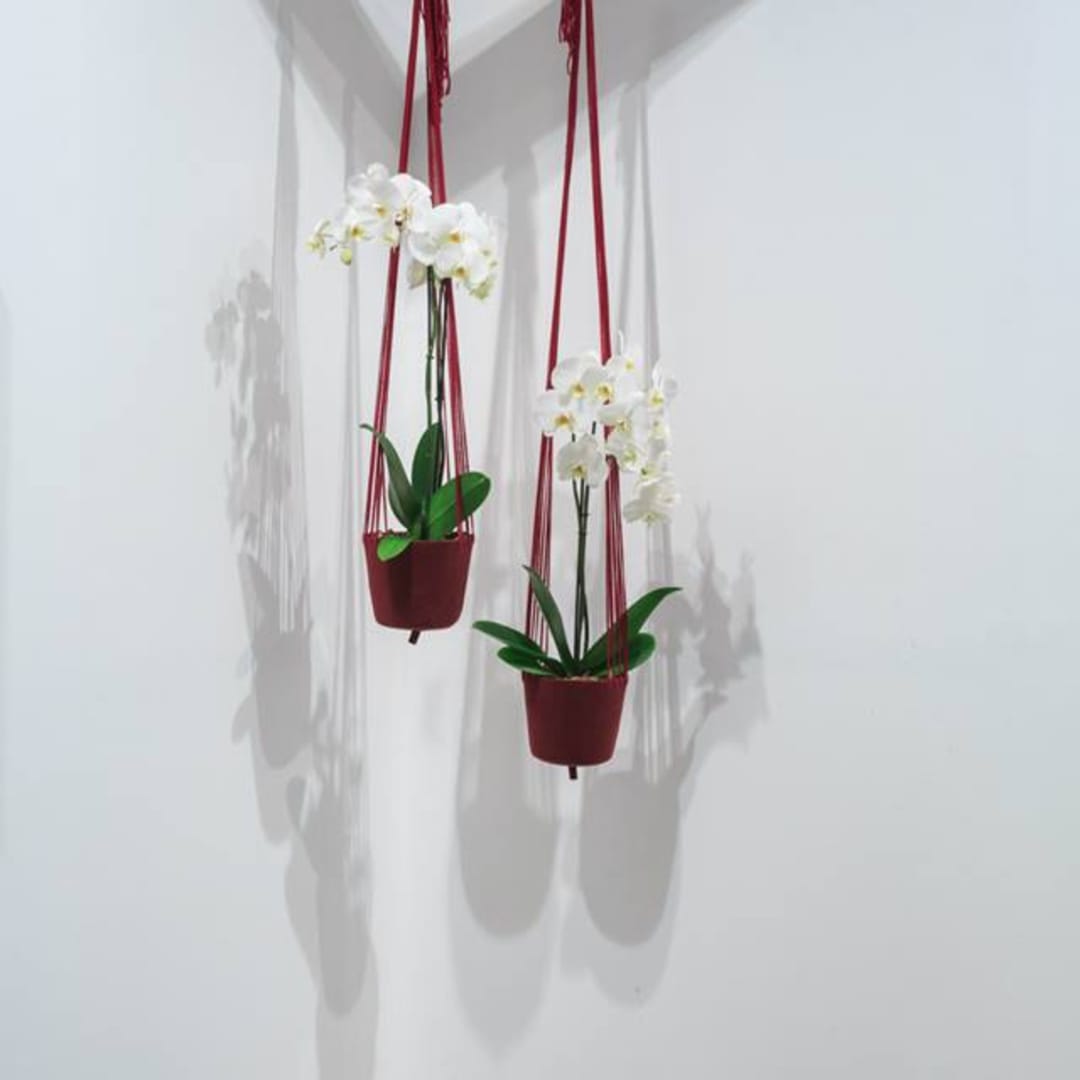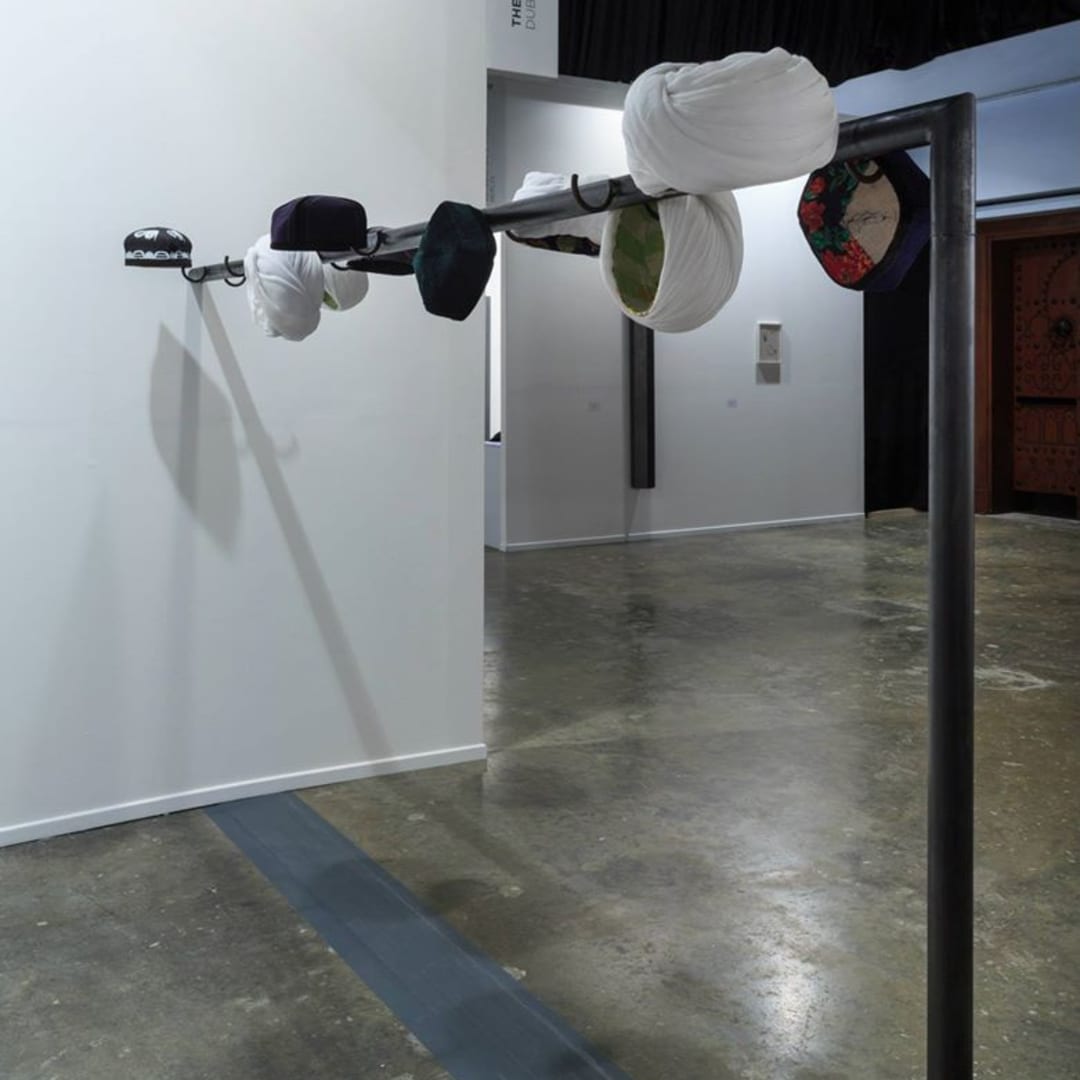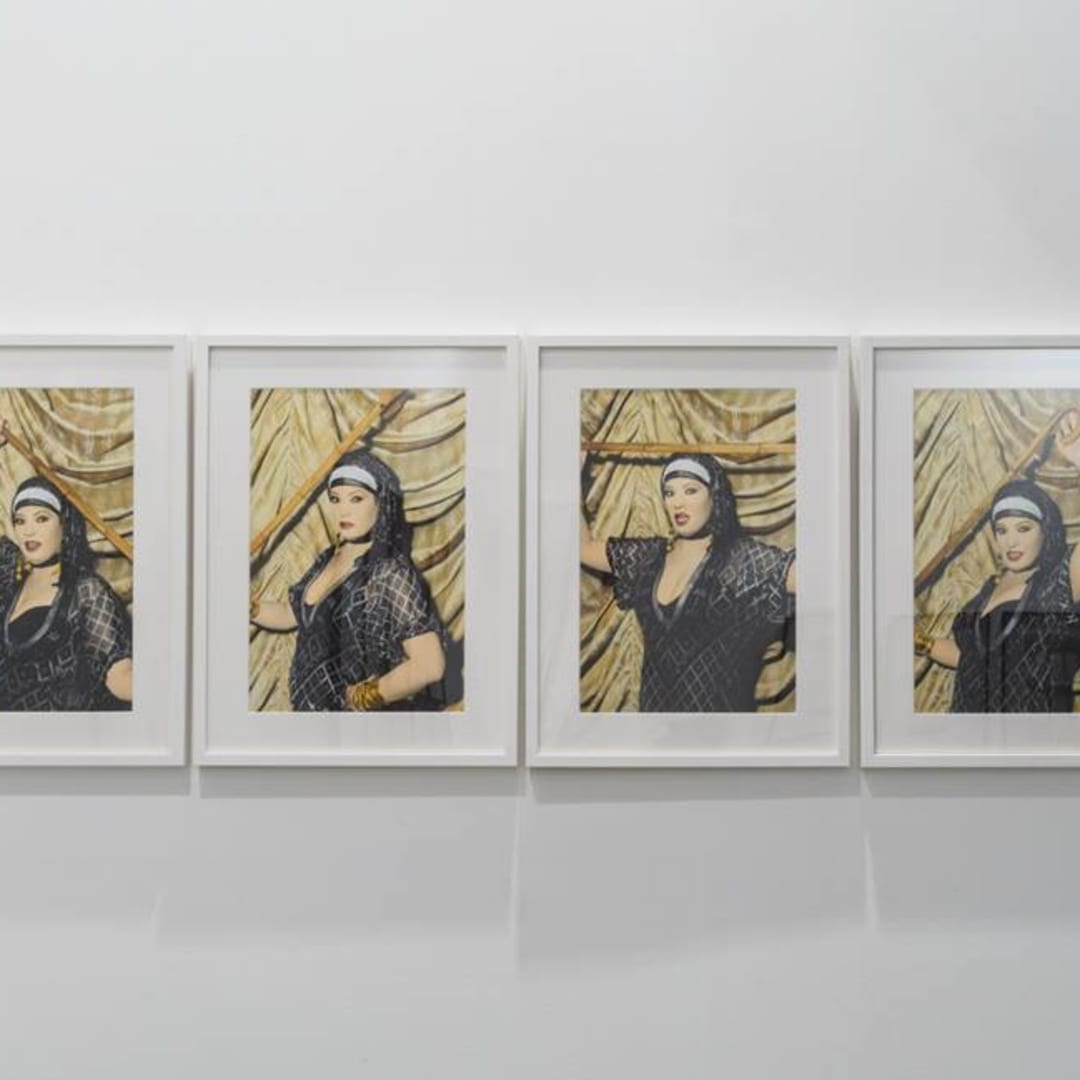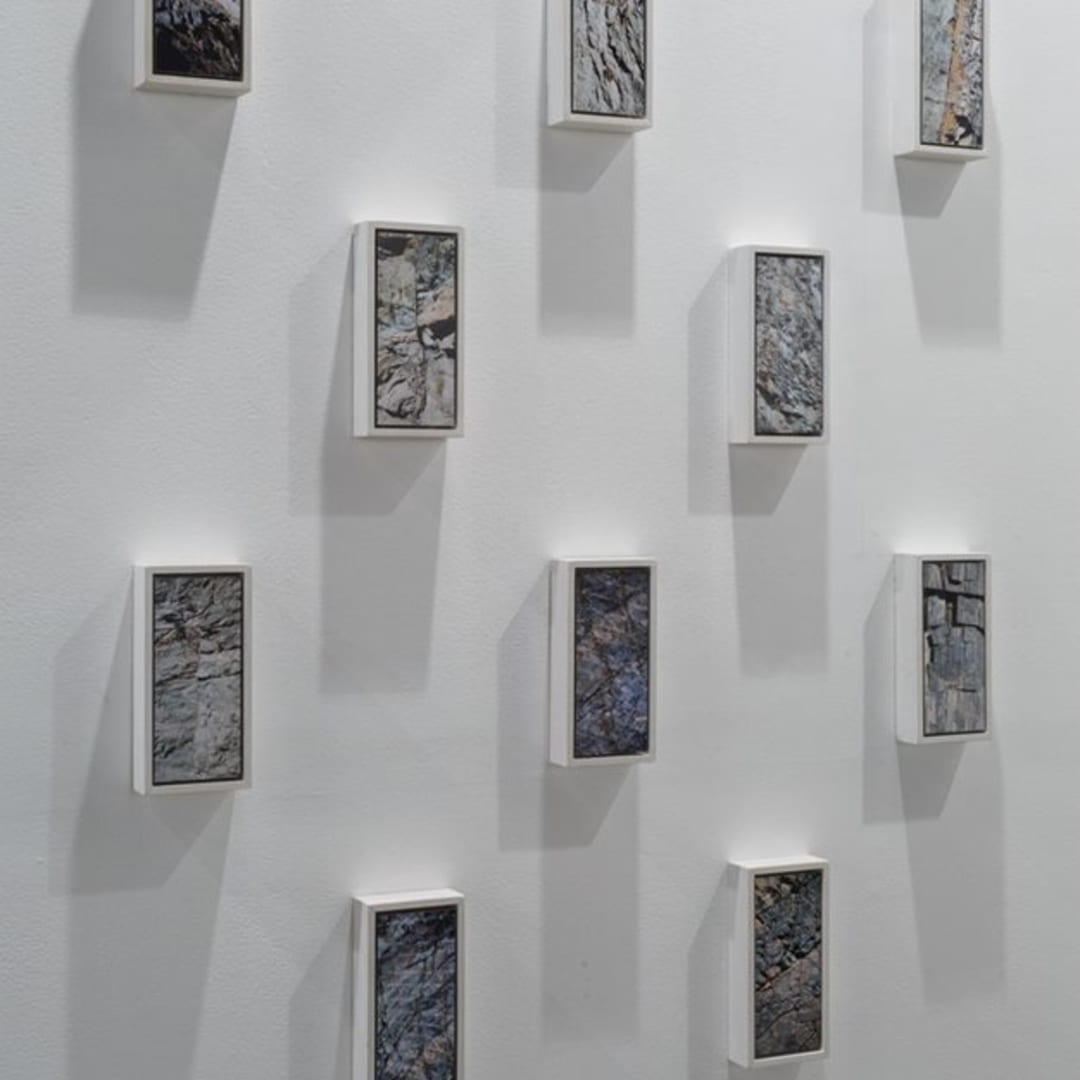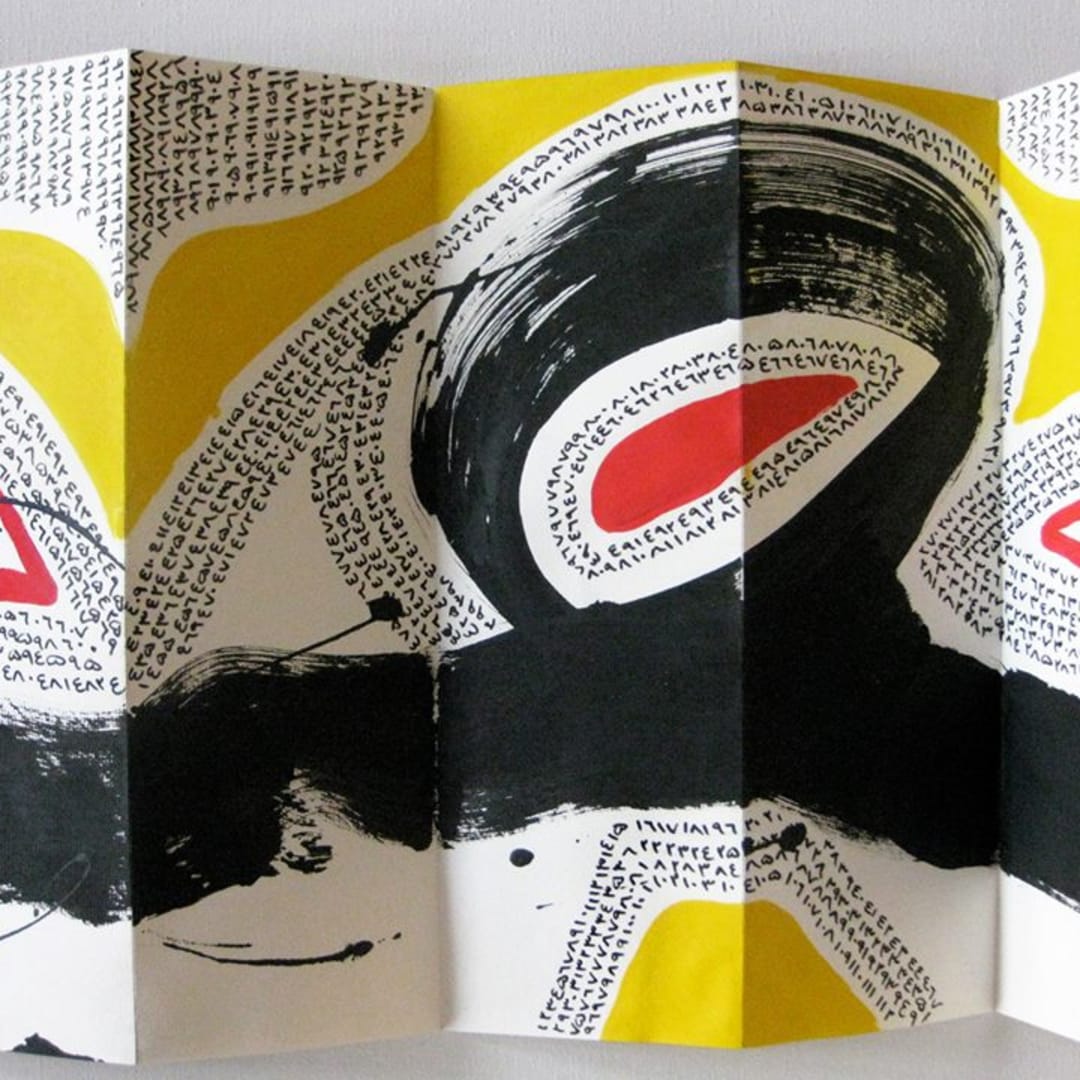The Third Line is participating in the 9th edition of Art Dubai, and is exhibiting works by Abbas Akhavan, Arwa Abouon, Golnaz Fathi, Huda Lutfi, Pouran Jinchi, Sara Naim, Slavs and Tatars and Youssef Nabil. In addition to this, we are pleased to announce two book launches: ‘Mirrors for Princes’ by Slavs and Tatars and ‘Summer, Autumn, Winter…and Spring: conversations with artists from the Arab World’ which includes Joana Hadjithomas & Khalil Joreige and Zineb Sedira.
Returning to Art Dubai, The Third Line is participating with more than ninety leading regional and international galleries. The presentation looks at synergies of movement, socio-political thought and interpersonal reflection.
New drawings by Abbas Akhavan use stone paper with water based inks to create drips and wells, utilising the natural pull of the earth. New works by Arwa Abouon, from her Dear Men series, uses Fez Hats as flowerpots in a symbolic representation of the young boys in her life blossoming into men. Golnaz Fathi presents works from her diary series that log her calligraphic scribbles and drawings during her travels and personal time. The found assemblage work by Huda Lutfi is from her last major body of work, ‘Cut and Paste’, which looks at a personalised historical narrative of a still unclear documentation of Egypt’s recent and tumultuous past. Pouran Jinchi’s work is an investigation into deconstructing calligraphy and explores the physical form and its signified insinuations through the lens of the dark narratives of The Blind Owl, a major literary work by Iranian author Sadegh Hedayat. Metamorphic Masafi, one of Sara Naim’s most recent bodies of work, are photographs of landscapes occupying the historic region within the Emirates; specifically looking at Metamorphic mountains which are constantly and patiently evolving through the rock’s heat and pressure. Slavs and Tatars provide a preview into their new body of work Mirror for Princes, with an installation of hats. A form of political writing often called advice literature, shared by Christian and Muslim lands, in particular during the Middle Ages but also with notable examples in the 16-19th centuries, mirrors for princes attempted to elevate statecraft to the same level as faith/religion. The self-portraits by Youssef Nabil reflect upon his dislocation from Egypt, and are often in settings connected to his childhood or his travels. The images portray a combination of worldly realities and illusory dreams, loneliness, eroticism and death.
